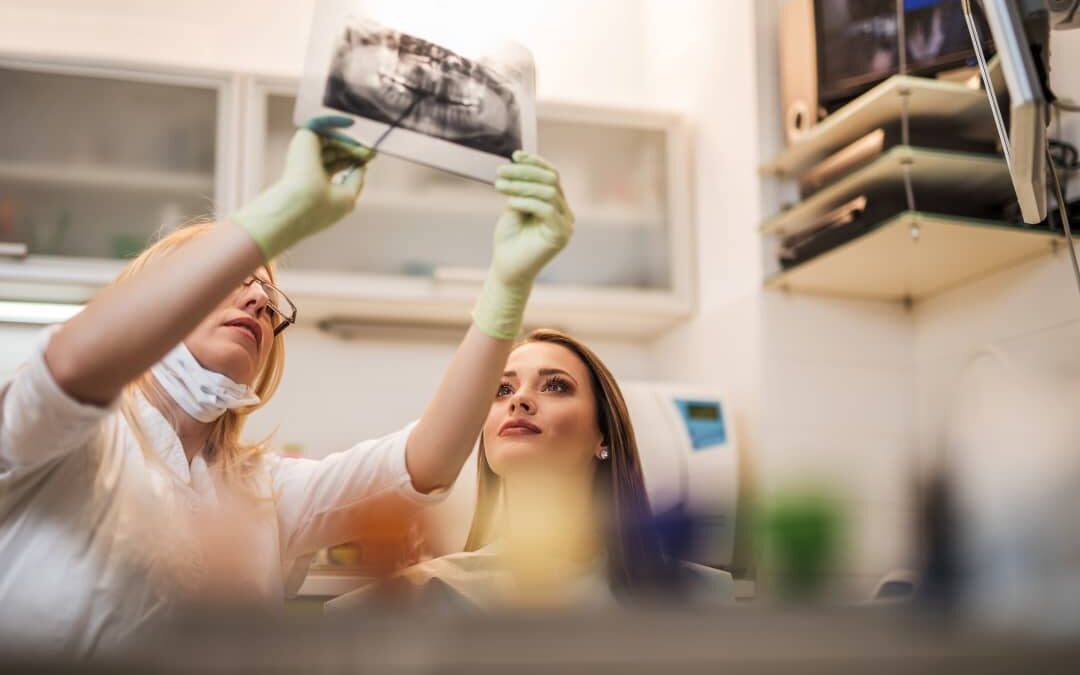If you are in need of dental restoration or tooth replacement, you may come across the term “prosthodontist.” But what exactly is a prosthodontist, and what sets them apart from other dental professionals?
You can learn everything there is to know about prosthodontists in this blog post.
What is a Prosthodontist?
A dentist who specializes in repairing and replacing teeth is known as a prosthodontist. They are professionals in diagnosing, planning, and treating complicated dental problems associated with missing or damaged teeth. Prosthodontists undergo additional education and training beyond general dentistry to provide advanced treatment options and specialized care.
What do Prosthodontists do?
Prosthodontics near you can provide a range of services related to restoring and replacing teeth. They use techniques and materials to create prosthetic devices such as dental implants, bridges, and dentures. They also specialize in cosmetic dentistry procedures, such as teeth whitening, veneers, and other procedures that improve the appearance of the teeth and smile.
For patients with complicated dental problems, prosthodontists work closely with other dental specialists like orthodontists, periodontists, and oral surgeons to create comprehensive treatment programmes. They approach dental care holistically, considering not only the teeth but also the gums, jaw, and general state of oral health.
When to See a Prosthodontist?
Additionally, prosthodontists treat patients who have complex dental problems caused by trauma, infection, or congenital flaws. There are several circumstances in which you might consider consulting a prosthodontist:
Missing teeth
A prosthodontist can assist you in investigating your tooth replacement alternatives if you are missing one or more teeth. Depending on the specifics of your situation, this may involve dentures, bridges, or dental implants.
Severely damaged teeth
They can examine your teeth if they are significantly decaying or damaged and help you decide whether crowns, inlays, or onlays can be used to restore the teeth.
Complex cases
A prosthodontist can collaborate with other dental specialists to create a thorough treatment plan if you have a complex dental problem that needs a multidisciplinary approach. If you require a combination of periodontal, orthodontic, and dental implants to get the results you desire.
Cosmetic concerns
Prosthodontists also specialize in cosmetic dentistry, so if you have cosmetic concerns related to your teeth, such as staining, chipping, or misalignment, they can help you explore options like teeth whitening, veneers, or bonding.
How do Prosthodontists Differ from Regular Dentists?
Prosthodontists provide specialized care related to restoring and replacing teeth and have additional education and training beyond general dentistry. They are often called upon to treat complex cases and work closely with other dental professionals to develop comprehensive treatment plans. Regular dentists in Kitchener provide a wide range of dental services, but may not have the same level of expertise in prosthodontics as a prosthodontist.
Visit Us Today
If you are looking for qualified prosthodontics in Kitchener, come into Crescent Oak Dental. We have a team of experts who can help you with your dental issues by evaluating your oral health. Our dentist near you can also recommend the best treatment option which can improve your oral health and enhance your appearance.
Take a step towards a healthier smile by scheduling your appointment with us!
FAQs
1.What does prosthodontics provide?
Prosthodontics provides specialized care related to restoring and replacing teeth, including the creation of prosthetic devices such as dental implants, bridges, and dentures, as well as cosmetic dentistry procedures.
2.How do prosthodontists compare to general dentists?
Prosthodontists differ from regular dentists in that they have additional education and training beyond general dentistry, provide specialized care related to restoring and replacing teeth, are often called upon to treat complex cases, and maybe be board certified in prosthodontics.
3.What are the common problems that prosthodontics treat?
Prosthodontists commonly treat problems related to missing or damaged teeth, including tooth decay, gum disease, bite problems, jaw joint pain, and cosmetic concerns such as staining or misalignment of teeth. They specialize in creating prosthetic devices such as dental implants, bridges, and dentures, as well as cosmetic dentistry procedures to restore or improve the appearance and function of teeth.
4.How to choose the prosthodontist for me?
To choose a prosthodontist, you can consider the following steps:
- Ask for recommendations from your regular dentist
- Check the credentials and experience including their education, training, and years of experience
- Check online reviews
- Check communication style and approach to treatment


